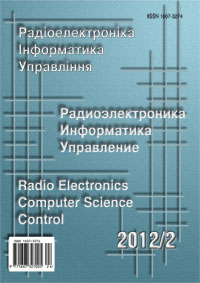ASSOCIATIVE DEPENDENCIES PROPERTIES IN DATA ANALYSIS
DOI:
https://doi.org/10.15588/1607-3274-2012-2-19Keywords:
associative dependency, functional dependency, data dependency, data analysisAbstract
This paper describes the results of research in the field of associative dependencies properties and effective aggregation possibilities. Also it briefly describes the developed method of special class of associative dependencies detection in large data volumes. The main idea of this research is aggregation of elementary associative dependencies into more complicated once. This approach gives good performance results and allows processing data volumes with millions records. Current paper shows how it is possible to define algebra of associative dependencies with few main operations and rules of inference, taking place in such algebra. The rule set completeness is also proven here to be sure that no rules are lost during inference. The outcome of described theory is highly effective data analysis method, capable to detect wide range of associative dependencies in relational data.Downloads
Published
How to Cite
Issue
Section
License
Copyright (c) 2014 O.Y. Pshenychnyi

This work is licensed under a Creative Commons Attribution-ShareAlike 4.0 International License.
Creative Commons Licensing Notifications in the Copyright Notices
The journal allows the authors to hold the copyright without restrictions and to retain publishing rights without restrictions.
The journal allows readers to read, download, copy, distribute, print, search, or link to the full texts of its articles.
The journal allows to reuse and remixing of its content, in accordance with a Creative Commons license СС BY -SA.
Authors who publish with this journal agree to the following terms:
-
Authors retain copyright and grant the journal right of first publication with the work simultaneously licensed under a Creative Commons Attribution License CC BY-SA that allows others to share the work with an acknowledgement of the work's authorship and initial publication in this journal.
-
Authors are able to enter into separate, additional contractual arrangements for the non-exclusive distribution of the journal's published version of the work (e.g., post it to an institutional repository or publish it in a book), with an acknowledgement of its initial publication in this journal.
-
Authors are permitted and encouraged to post their work online (e.g., in institutional repositories or on their website) as it can lead to productive exchanges, as well as earlier and greater citation of published work.






